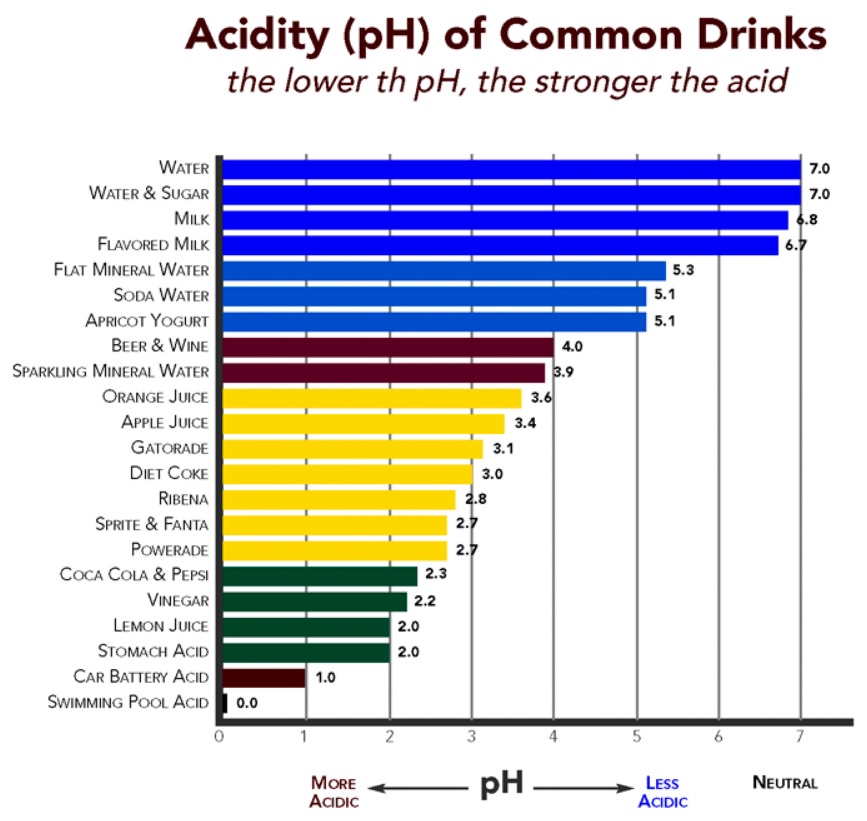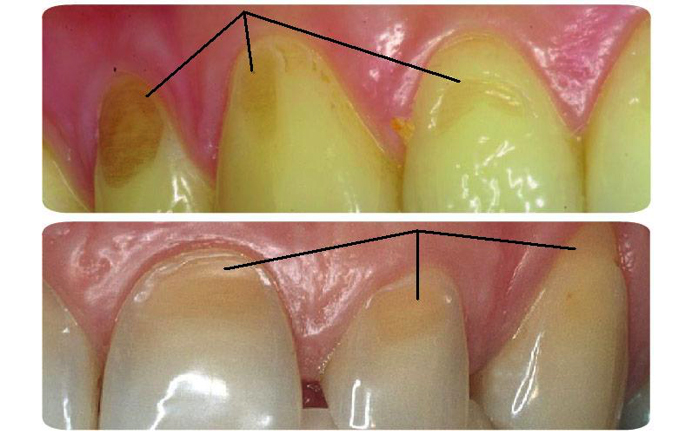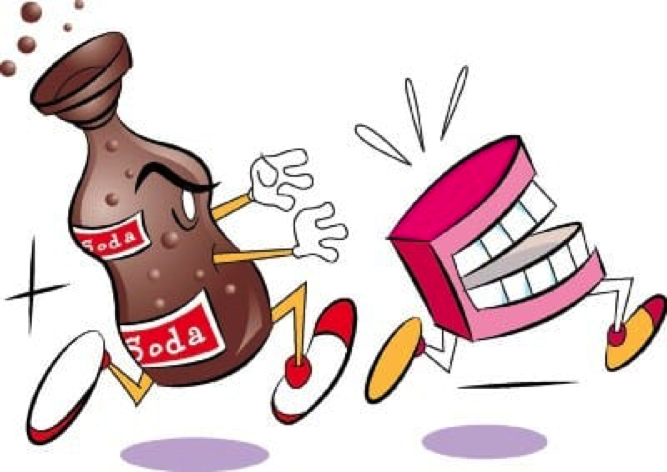Drinks and tooth Erosion
What to drink?
Tap water is the safest thing there is (so without any infusions). Black coffee and distilled water are slightly more acidic than tap water, so do keep that in mind. Skimmed milk has a tiny bit of sugar, but is on the safe side too. More risky are the ‘sugar free’ type of drinks, mainly because of their acidic levels. Sparkling water and water infused with lemons or limes also fall under the acidy category. The worst thing for our teeth are drinks that combine high levels of sugar and acid, for example regular Coke, wine or fruit juice.
This brings us to another risk for your teeth in the diet, the acidity. Exactly like the acid the bacteria produce, we can also damage our teeth with acidity from food and drinks or from our own body (acid reflux). Usually the bacteria create a hole in the tooth on spots where your toothbrush can’t reach, for example in between the teeth. However, acidity from food and drinks or reflux will reach all your teeth surfaces, and therefore will not create a cavity, but overall loss of enamel, which we call tooth erosion.

This usually causes sensitivity, teeth to become more yellow and more translucent. When related to the diet (i.e. not related to acid reflux), it’s typically either related to a high intake of fruit as a snack or the type of drinks one consumes. If instead of tap water, you rather only drink sparkling water or lemon infused water, a constant acid environment will be created for your teeth.
It is a very slow and continuous process, but over time it will create thinner enamel or complete loss of the enamel. If the enamel is lost, we need to rebuild the teeth with crowns or fillings.
Again, your saliva and tap water can help neutralise these acids and remineralise enamel, but this needs time. So if you have anything acidic to drink or eat, wait at least 30 minutes before brushing your teeth.
In this table, you can see that water is the only drink that has a healthy pH level, which will not cause any erosion to the teeth. Wine is in this table combined with beer at 4.0, but actually is more around 3.3-3.6.
Clearly visible is the regular Coke and Pepsi at 2.3, almost has the same acidity as vinegar. But even flat mineral water, which may feel safe, is still slightly acidic, and can cause damage if this is used as a regular drink.

In summary:
- Watch your intake! try to stay under 5 moments a day where you eat or drink something that is not plain (filtered) tap water, to give your saliva a chance to remineralise your enamel.
- When you do eat something, try to eat fresh fruit and vegetables, protein and nuts. The main thing to avoid is sugary snacks and refined carbohydrates, which can be found for example in white bread and regular pasta.
- If you do have something acidic to eat or drink (fruit, juice, wine etc), always have a glass of tap water on the side to neutralise those acids and wait at least 30min before brushing.
- Try to combine acidic drinks with something to eat, so have your juice or smoothie with breakfast, and your glass of wine with some cheese. This will help the saliva to flow which will help to neutralise, and tap water afterwards will create a neutral environment again for the teeth.
- Reduce the amount of bacteria that can cause decay, by brushing your teeth twice a day with an electric toothbrush and daily floss to remove any plaque in between the teeth.
- Always use a toothpaste containing fluoride, which can help strengthen the enamel so it’s better protected against those acidic attacks.
- Especially now that we are more at home, we may tend to walk to the fridge or the cupboards more than we would be able to in an office environment. Try to stick to the same eating moments as before, and try to avoid having a little snack here and there, and grazing throughout the day.
- If you feel peckish, have some tea (without sugar and milk) and hopefully that will get you going until your next meal time!
And if you do fail one day and have 10 extra moments, don’t worry. With good oral hygiene, your teeth are able to deal with the attacks, as long as it’s not every day.
By Dr. Nicole Verschaeren

